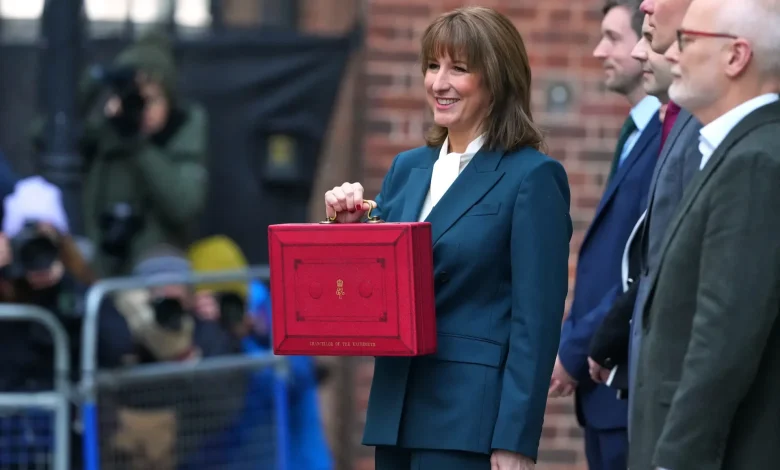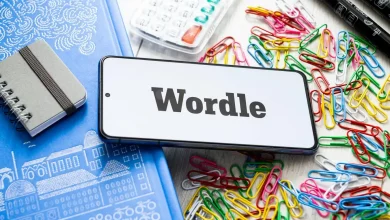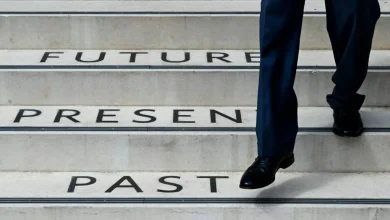UK unveils significant tax rises in budget after ‘shambolic’ forecast leak

United Kingdom Chancellor of the Exchequer Rachel Reeves has unveiled significant tax rises expected to raise 26.1bn pounds ($34.4bn) as she battles a downgrade in forecast economic growth.
The presentation of her budget statement to parliament on Wednesday came after an unprecedented leak from the government’s independent forecaster, the Office for Budget Responsibility (OBR), which published its economic and financial outlook early on its website, essentially signalling Reeves’s measures in advance.
Recommended Stories
list of 4 itemsend of list
Reeves criticised the watchdog for the embarrassing blunder, which the OBR blamed on a “technical error”, saying it went “live on our website too early this morning”.
“This is deeply disappointing and a serious error on their part,” she told lawmakers.
Reeves faced the onerous task in the budget, her second since the Labour Party returned to power after 14 years, of restoring the UK’s public finances while upholding Labour’s election pledges – requirements that left limited room to manoeuvre on taxes or spending.
“I’ve made my choices – not reckless borrowing, not dangerous cuts but stability for our economy, security for the public finances and security for family finances too.”
Freeze on income tax thresholds
The budget’s biggest change in terms of money raised is freezing the tax levels into which earners are placed, meaning as wages rise, more people fall into higher tax brackets.
The continued freeze on the income tax brackets and national insurance thresholds will pull 780,000 people into paying basic-rate income tax for the first time by the 2029-2030 fiscal year along with 920,000 more higher-rate taxpayers and 4,000 additional-rate payers.
The freeze is projected to raise about 8.3bn pounds ($10.95bn) in 2029-2030 and will extend to 2030-2031.
Other personal tax changes include 4.7 bn pounds ($6.2bn) to be raised through charging national insurance on salary-sacrificed pension contributions and 2.1 bn pounds ($2.77bn) through increasing tax rates on dividends, property and savings income by 2 percentage points.
Taken together, the OBR now expects the tax burden to rise to 38.3 percent of gross domestic product (GDP) by 2030-2031, the highest level on record.
‘Mansion tax’, gambling duty hikes
Other revenue-raising measures include a “mansion tax” on homes worth more than 2m pounds ($2.6m) that will take effect in 2028, raising an estimated 400m pounds ($527.6m).
A new charge of 3 pence (4 cents) per mile for electric and plug-in hybrid vehicles will take effect in April 2028, a measure expected to raise 1.4bn pounds ($1.85bn).
Reeves also announced an increase in duties on remote gambling from 21 percent to 40, which she said would raise more than 1bn pounds ($1.3bn) by 2031.
Weakening growth projections
The fiscal tightening is playing out against a weakening economic backdrop.
Although the OBR raised its GDP growth forecast for 2025 from 1 percent to 1.5 percent, it downgraded medium-term growth projections with 2026 falling from 1.9 percent to 1.4 percent, 2027 from 1.8 to 1.5 and similar reductions expected through 2029.
Much of the downgrade stems from lower expectations for productivity growth.
Reeves insisted the sluggish outlook was the legacy of the previous Conservative governments as she sought to emphasise continuity with Labour’s message of stability since taking office in July last year.
‘Laughing stock’
But the OBR leak overshadowed the statement and fuelled opposition criticism.
Conservative leader Kemi Badenoch said the error made Britain look like a “shambolic laughing stock” and said Reeves should consider resigning.
“If she doesn’t resign for breaking her promises [on the economy], she should sure as hell go for this,” she said.
Shadow chancellor Mel Stride called the premature publication of the OBR outlook an “utterly outrageous” release of market-sensitive material that could constitute a criminal act.
The budget comes at a politically precarious moment for the Labour government.
Prime Minister Keir Starmer is grappling with poor poll ratings and growing unease within his party as some MPs have publicly speculated about a future leadership challenge.
Analysts said a budget misfire could deepen the sense of crisis.
Reeves, however, insisted Labour’s plan would “beat the forecasts” and set the foundations for long-term growth.
“Brick by brick we’ve been building growth in our economy,” she said. “Building roads, building homes, getting spades in the ground and cranes in the sky.”





